Investment firm details 10 years of plastics impact
Closed Loop Partners has provided funding to more than 80 companies and municipalities over its decade in existence, a period of significant turbulence in the
Recycling isn’t something we just do at home. Workplace recycling is good for our community, our environment, and the bottom line.
Recycling isn’t something we just do at home. Workplace recycling is good for our community, our environment, and the bottom line.
Much of what your business currently throws “away” can be recycled.
Below is a list of general items that can be recycled in most Business Recycling Programs. It’s important to follow your town or county’s recycling rules, so be sure to check with your hauler to make sure your business is recycling right.
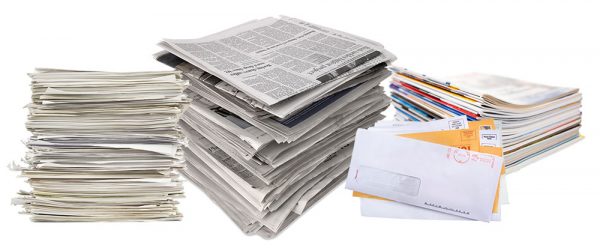
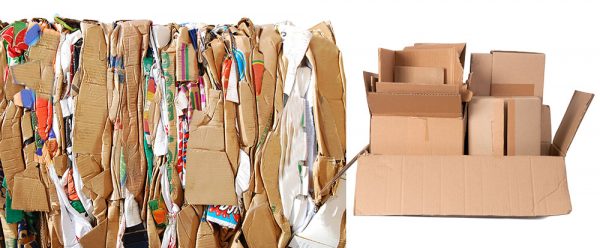
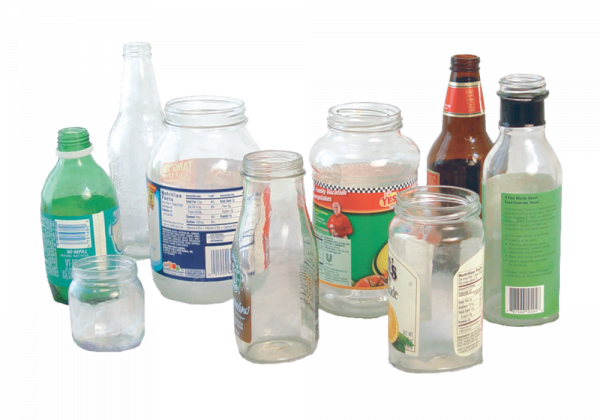
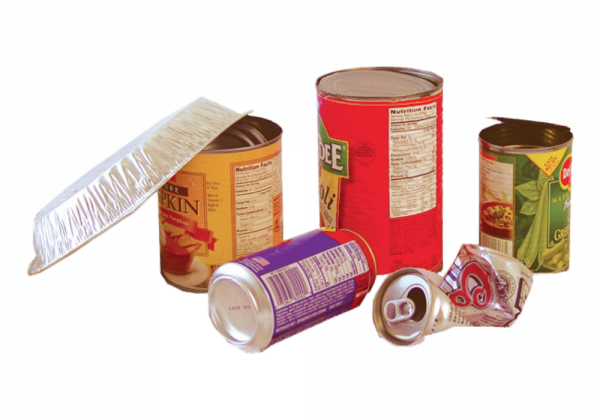
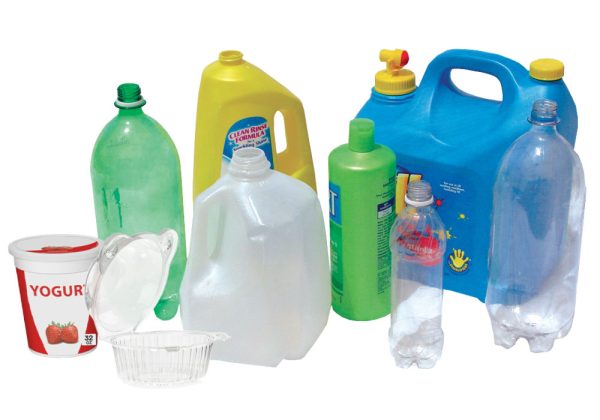
Download our handy printable flyer and post it on your refrigerator or near your recycling bins to remind everyone about what belongs there.
Print these posters and place with your recycling, organics, and garbage collection containers so everyone knows what belongs in what container.
To see more printable posters and flyers, visit our Posters page.
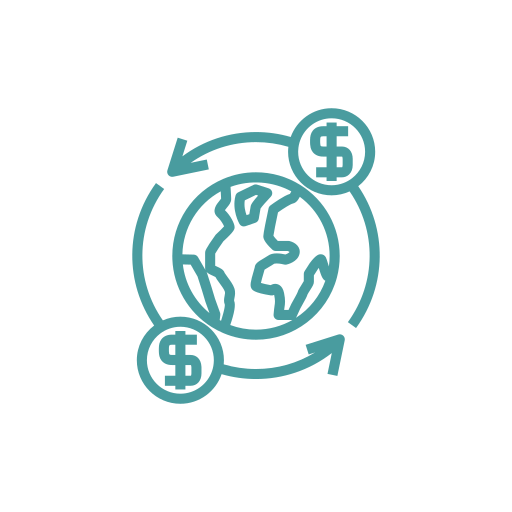
Businesses may be able to cut costs for trash disposal after they start recycling.
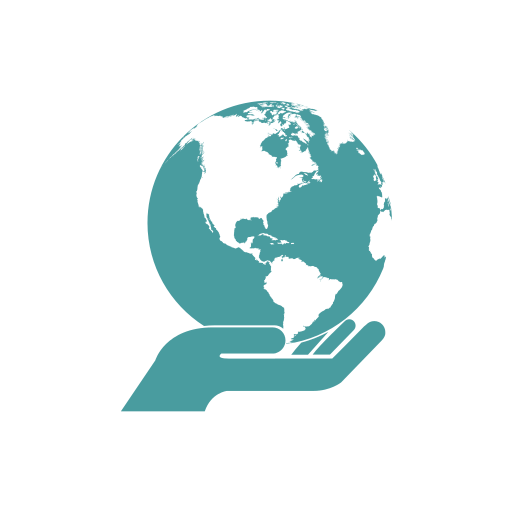
By recycling, you conserve valuable natural resources. Using recycled materials to make new products saves energy and reduces the amount of air and water emissions produced during the manufacture of new products.
![]()
Recycled materials make up a significant portion of our nation’s resource base. By recycling, you provide industry with the raw materials it needs to make new products. This, in turn, supports business and jobs.
![]()
Recycling makes good business sense. Your customers will appreciate your participation, and you will be sending the message that your business cares about its community and the future.
![]()
For many California businesses recycling and organics recycling isn’t just good practice, it’s the law. Learn more here.
![]()
Some recurring business waste is a non-productive asset. You spend money on unnecessary or over stocked items that go unsold or unused. Looking at waste as a business inefficiency can save you money and reduce your waste size.
In the High Desert, many small businesses exemplify a deep commitment to sustainability, often featuring generational entrepreneurs who pass down their dedication to environmental care from one generation to the next. These local businesses incorporate the principles of reduce, reuse, and recycle in every aspect of their operations. They stand out for their innovative approaches to minimizing waste, repurposing materials, and adopting eco-friendly practices.
Just a few minutes from the entrance to Joshua Tree National Park, the 29 Palms Inn is anchored by the natural spring waters of the Oasis of Mara, the site of life-giving waters for desert animals and humans for thousands of years. The Oasis originally consisted of a series of springs stretching for nearly a mile across a southern portion of Twentynine Palms. Today, the Oasis’ last remaining pond is a landmark at the center of the 29 Palms Inn property.
With a deep appreciation for the Oasis and the beauty of the desert, for five generations the Inn’s proprietors have demonstrated an enduring dedication to water and resource conservation. Recognizing the limitations and challenges posed by traditional recycling methods, the Inn advocates for proactive measures to minimize waste generation from the outset incorporating sustainability initiatives into daily operations of their Inn, restaurant, and their on site farm and garden.

In 2023, Anastasia Jaramillo opened Chiquita Rosita’s, a 900-square foot Mexican restaurant nestled in downtown Barstow along the iconic Route 66. This cozy, family-owned restaurant, employs 5 people (all family members), and seats up to 35 indoors and out.
Chiquita Rosita’s carries forward a rich legacy of familial dedication, entrepreneurship, and community engagement that spans four generations and more than six decades. Anastasia’s family operated Barstow’s popular Rosita’s Mexican restaurant from 1954 to 2021. When Rosita’s closed in 2021, it paved the way for the next generation and Chiquita Rosita’s was born.
Chiquita Rosita’s embodies a tradition of waste reduction passed down through generations. By prioritizing the principles of reduce, reuse, and recycle, Chiquita Rosita’s demonstrates how small changes can make a big impact, one plate at a time.
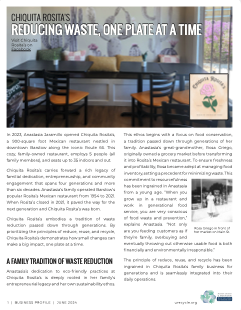
Chiquita Rosita’s
760 E Main Street
Barstow, CA 92311
In this Trash Talk Tuesday video from the Town of Apple Valley, we join students at the Academy for Academic Excellence in Apple Valley, to learn about how they have integrated organic recycling into their daily routines to comply with California’s SB 1383 law.
The school has implemented a system where leftover food from lunches is sorted into compost bins, which are then taken to facilities to be converted into fertilizer. This process helps the school comply with SB 1383, reduces waste, and supports local gardens and plants. To further reduce food waste, any unwanted but edible food is placed in a bin for others to take, and leftover fruits and vegetables are given to staff with animals or used to feed the school’s tortoises, promoting a comprehensive and sustainable approach to waste management.
Recycling is circular. A material is manufactured into a product which goes to a store, where you buy it. You use the product — and hopefully reuse it — then put it in your recycling cart. From there it is collected and taking to a processing plant where it turned back into base materials which a manufacturer uses to create something new. And the cycle starts again.
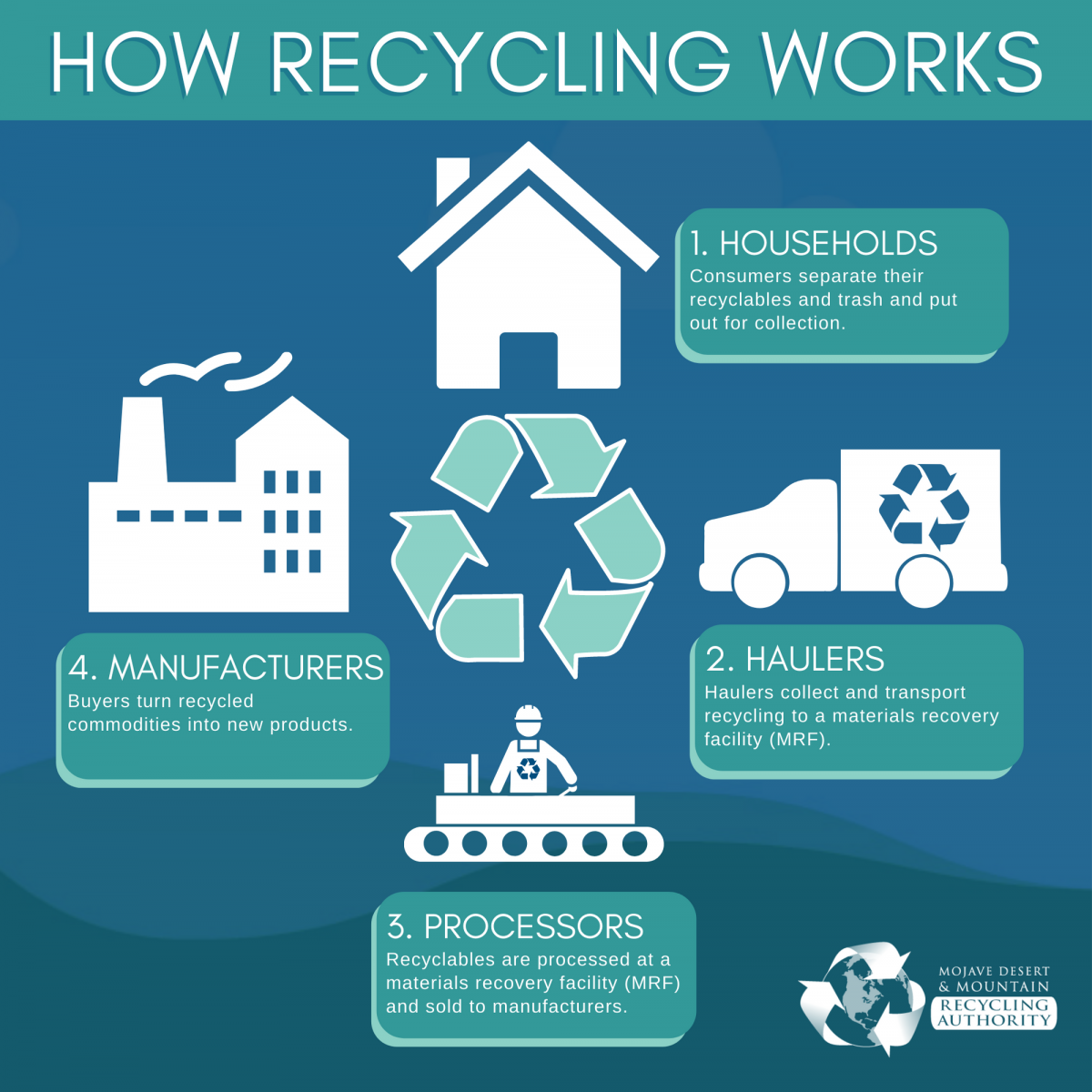
The MRF is an intermediate processing center— sorting mixed recyclables into separate categories: newspaper, cardboard, other mixed papers, glass, steel cans, aluminum cans, PET plastics, HDPE plastics, and more. Once the recyclables are sorted (and compacted into bales), they are then ready to be shipped to businesses to be made into new products.
Most communities in the High Desert and Mountain area are served by the Victor Valley Materials Recovery Facility (MRF)
The MRF is the “middleman” between residents who separate recyclables, and the industries which use recyclable materials to make new products.
The MRF is owned by the Town of Apple Valley and City of Victorville; administered by the Mojave Desert and Mountain Recycling Authority; and operated by Burrtec Waste Industries.
17000 Abbey Lane, Victorville, CA
Hours:
Monday – Friday 8am – 4pm
Saturdays 8am – 12pm
Phone: (760) 241-1284
This guide introduces you to the MRF and how recycling materials are processed at the facility.
The best place to start for information about your local curbside recycling service is to contact your hauler.
Recycle Alley is a community drop-off site open to all residents and businesses of the High Desert.
Visit Recycle Alley before you go to the landfill!
Recycle Alley is a community drop-off site at the Victor Valley Materials Recovery Facility. You can bring clothes, plastic bags, electronics and scrap metal as well as traditional recyclables (bottles and cans, paper, rigid plastic). Check out the buy-back pricing for bottles and cans, newspaper and cardboard.
By recycling these items at the MRF, residents and businesses reduce the amount of trash going to the landfill. This helps reduce landfill disposal costs and saves valuable resources.
Call for current pricing.
(760) 241-1284
*Indicates buy-back redeemable item
** Free to residents—fees apply for businesses
17000 Abbey Lane in Victorville
Just off Stoddard Wells Road heading north toward the Landfill.
Hours: Monday – Friday, 8am – 4pm
Phone: (760) 241-1284
Web: www.VictorvilleRecycles.com
The laws covered below apply to a “business” defined as any commercial or public entity including but not limited to, a firm, partnership, proprietorship, joint-stock company, corporation, or association that is organized as a for-profit or non-profit entity, strip mall (e.g. property complex containing two or more commercial entities), industrial facility, school, school district, community colleges, special district or a federal, state, local, regional agency or facility.
If your business qualifies, please read through these carefully and contact your local recycling coordinator to make sure your business is in compliance.
SB 1383 is a new law that requires the state to dramatically expand its composting abilities and reduce the amount of waste sent to landfills.
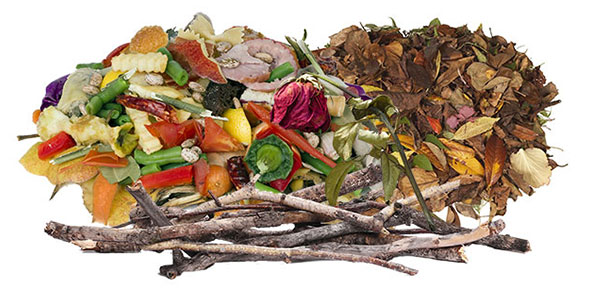 Organic waste (organics) such as food waste, green waste, landscape and pruning waste, and nonhazardous wood waste make up half of what Californians dump in landfills. When organic waste is sent to landfill, it decomposes anaerobically (without oxygen) which creates methane — one of the most potent greenhouse gases in Earth’s atmosphere. Methane is a short-lived climate pollutant that is 84 times stronger than carbon dioxide over a 20-year period. NASA recently captured satellite images
Organic waste (organics) such as food waste, green waste, landscape and pruning waste, and nonhazardous wood waste make up half of what Californians dump in landfills. When organic waste is sent to landfill, it decomposes anaerobically (without oxygen) which creates methane — one of the most potent greenhouse gases in Earth’s atmosphere. Methane is a short-lived climate pollutant that is 84 times stronger than carbon dioxide over a 20-year period. NASA recently captured satellite images
of California landfills and published an inventory showing them as super emitters of methane.
Keeping organic material out of landfills will slow the rate of greenhouse gas accumulation and begin to reduce their impacts.
Food recovery means collecting edible food that would otherwise go to landfill and redistributing it to feed people in need. Californians send 11.2 billion pounds of food to landfills each year, some of which was still fresh enough to have been recovered to feed people in need. One in 5 children go hungry every night in California – redirecting perfectly edible food to feed those in need can help alleviate this. Feeding hungry people through food recovery is the best use of surplus food and a vital way for California to conserve resources and reduce waste thrown in landfills.
To reduce food waste and address food insecurity, surplus edible food will instead go to food banks, soup kitchens, and other food recovery organizations and services to help feed Californians in need.
Everyone: cities, trash haulers, processors and generators like businesses and single/multifamily residents are required to keep organic materials out of the landfill and can receive fines if they do not comply.
If you own a business or apartment/condo complex (of five units or more), you are required to:
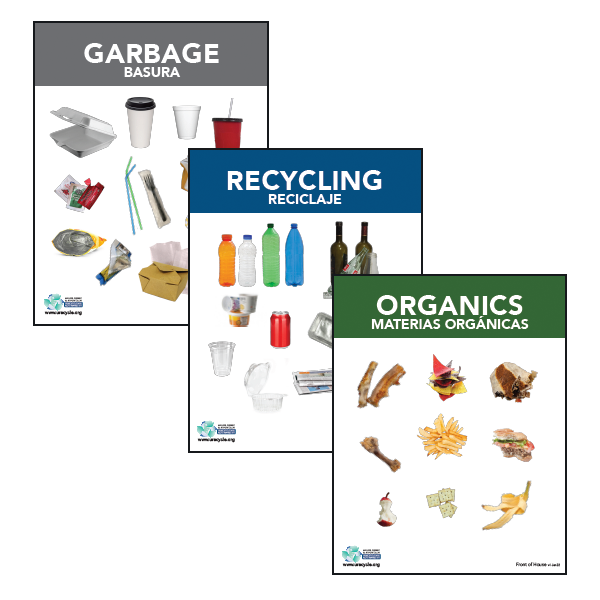
We offer free 8.5×11 pdf downloadable signage for front and back of house use. Find them here.
Printable signage is also available free online from CalRecycle’s PR Tool Kit.

Learn more about SB 1383 by visiting the California Department of Resources Recycling and Recovery website.
If your business produces four (4) cubic yards or more of solid waste per week, California law requires that you recycle.
In 2012, California adopted AB 341, the Mandatory Commercial Recycling Measure to expand programs to recover recyclable materials from the commercial sector. The purpose of the law is to reduce greenhouse gas emissions by diverting commercial solid waste from landfills and expand opportunities for recycling in California. It also creates jobs by providing materials for recycling manufacturing facilities, provides opportunities for businesses or multifamily complexes to save money, and creates a healthy environment for the community and future generations by recovering natural resources.
Assembly Bill 341 requires California businesses, including public entities, and multifamily complexes of five (5) units or more that generate four (4) or more cubic yards of solid waste per week to recycle.
Under the AB 341 law, businesses can take one or any combination of the following in order to reuse, recycle, compost or otherwise divert solid waste from disposal:

Learn more about AB 341 by visiting the California Department of Resources Recycling and Recovery website.
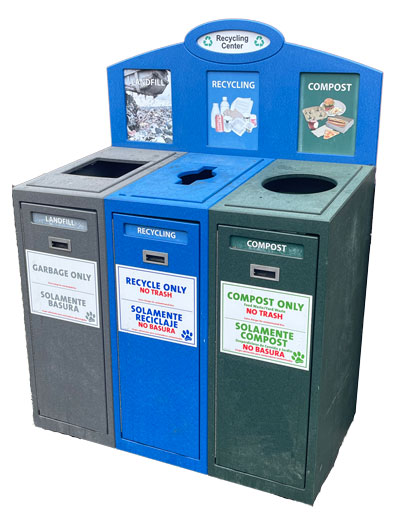
Effective July 1, 2020, businesses that sell products meant for immediate consumption must provide recycling and organics containers at front-of-house to collect waste generated by customers from products they purchase and consume on the premises.
AB 827 is intended to educate and involve consumers in achieving the state’s recycling goals by requiring businesses to make recycling and/or organic recycling bins available to customers.
AB 827 requires California businesses that generate two or more cubic yards of commercial solid waste per week and sell products meant for immediate consumption* provide recycling and organics containers alongside trash bins at front-of-house to collect waste generated by customers from products they purchase and consume on the premises.
* Full-service restaurants do not have to provide properly labeled containers for patrons but must provide properly labeled containers next to trash containers for employees to separate post-consumer recyclables and organics for customers.
Place containers for recycling and organics adjacent to trash containers where they are visible and easily accessible to customers. Containers must be clearly marked.

We offer free 8.5×11 pdf downloadable signage for front and back of house use. Find them here.
Printable signage is also available free online from CalRecycle’s PR Tool Kit.
If your business produces two (2) cubic yards or more of solid waste per week, California law requires that you recycle your organic waste.
In 2014, California adopted AB 1826, the Mandatory Commercial Organics Recycling Measure to divert organic waste generated by businesses and multifamily dwellings of five or more units. Mandatory recycling of organic waste is the next step toward achieving California’s aggressive recycling and greenhouse gas emission goals. Greenhouse gas emissions resulting from the decomposition of organic wastes in landfills have been identified as a significant source of emissions contributing to global climate change.
Assembly Bill 1826 requires California businesses, including public entities, and multifamily complexes of five (5) units or more that generate two (2) or more cubic yards of solid waste per week to arrange for an organic waste recycling service.
 Organic waste (or organics) means food waste, green waste, landscape and pruning waste, nonhazardous wood waste, and food-soiled paper waste that is mixed in with food waste. Please note that unlike businesses, multifamily dwellings are not required to have a food waste diversion program.
Organic waste (or organics) means food waste, green waste, landscape and pruning waste, nonhazardous wood waste, and food-soiled paper waste that is mixed in with food waste. Please note that unlike businesses, multifamily dwellings are not required to have a food waste diversion program.
Under the AB 1826 law, businesses can take one or any combination of the following actions as long as it is in compliance with local ordinances and requirements:

Learn more about AB 1826 by visiting the California Department of Resources Recycling and Recovery website.
Your community may have mandatory commercial recycling ordinances with different thresholds or more specific business recycling requirements than the state law. Reach out to your hauler for specific requirements and resources to help your business become successful recyclers under the law.
Every business should consider setting up a recycling program to cut down on waste and the overhead of disposal.
Setting up recycling is a simple matter of organization and commitment. Take the initiative and get a program started in your business today by following these four simple steps.
Survey what recyclable materials are discarded and where. Walk through your office and grounds and record what types of waste are discarded in each area. This walk-through lets you figure out what containers you’ll need.
Based on the results of the waste assessment, put recycling containers for each material in each area.
To begin, you might want to focus your efforts where you have found the most waste. For laser paper, consider setting up a system for printing drafts on second sides.
Location and good labeling are critical to every recycling program. Be sure that containers are well-marked. For public areas, you might want to consider special containers that indicate the type of recyclable with a hole or a slot. This will reinforce the goals of your program and reduce contamination (mixing) of recyclables.
 Once your containers, labels, and collection procedures are in place, communicate your program to managers and employees. You might consider a kick-off party for managers and supervisors. For staff, consider talking to each department or work group. You might also consider discussing recycling at all-company meetings.
Once your containers, labels, and collection procedures are in place, communicate your program to managers and employees. You might consider a kick-off party for managers and supervisors. For staff, consider talking to each department or work group. You might also consider discussing recycling at all-company meetings.
But one presentation is not enough. Be sure to reinforce the goals, principles, and procedures of your program. This will ensure that your procedures are being followed, will help people remain interested, and provide a forum for questions and new solutions. You can also put information or notices in e-mail, on the company’s internal web site, or in the company newsletter.
Don’t forget to include recycling information in your orientation for new employees. Be sure that your custodial staff or provider makes recycling part of their orientation as well.
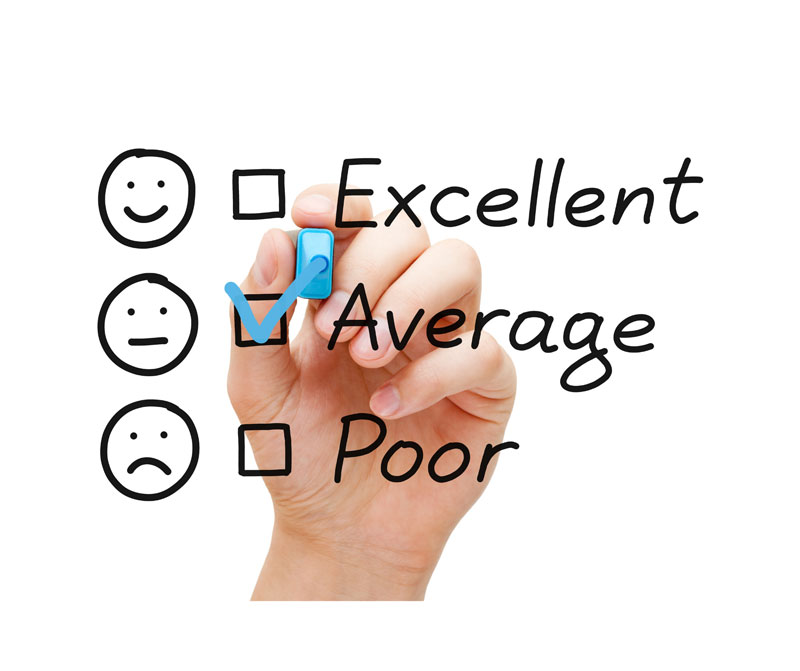
 CalRecycle offers several programs within the state that feature environmentally preferred purchasing. Visit their Buy Recycled Program or Environmentally Preferable Purchasing page for more information on how your business can benefit.
CalRecycle offers several programs within the state that feature environmentally preferred purchasing. Visit their Buy Recycled Program or Environmentally Preferable Purchasing page for more information on how your business can benefit.
Their Recycled-Content Product Manufacturers (RCPM) directory showcases innovative recycled-content products made by California manufacturers who use recycled waste as a feedstock. Whether you are a wholesale buyer, Procurement and Contracting Officer (PCO), or an individual consumer, use this listing to find recycled-content product manufacturers who make products, or intermediate products, designed with your needs in mind!
Green Seal
Green Seal is a nonprofit organization that provides environmental certification standards for a wide range of products and services; maintains lists of certified products; and publishes product guides.
McDonough Braungart Design Chemistry (MBDC)
MBDC sets environmental standards and awards a “Cradle to Cradle” certification to products considered healthy for humans and the environment throughout their lifecycles, and products that are sources of high-quality materials for perpetual cycles of assembly, use, disassembly and recycling or composting.
Responsible Purchasing Network (RPN)
Responsible Purchasing Network (RPN) is an international network of buyers dedicated to socially responsible and environmentally sustainable purchasing.
Scientific Certification Systems
SCS is a third-party provider of certification, auditing and testing services, and standards on food safety and quality, environmental protection and social responsibility.
Household hazardous waste (HHW) is any chemical-based material discarded from homes which may threaten human health or the environment when disposed of improperly.
Don’t let the word “household” mislead you, businesses produce items that are considered household hazardous waste too. How many batteries or cleaning supplies does your office go through? A lot!
It is important for the health and safety of our community that the items listed below are disposed of properly at a hazardous waste collection facility.
Does your business qualify as a Conditionally Exempt Small Quantity Generators? Find out here.
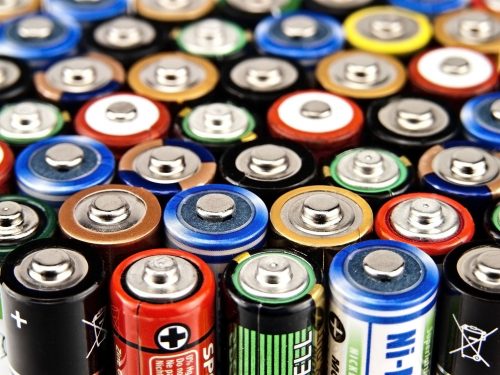
San Bernardino County residents may use any of the collection facilities in the areas listed below.
The Household Hazardous Waste Collection Facilities in San Bernardino County are run by the San Bernardino County Fire Department.
Call 909.382.5401 or 1.800.OILY.CAT (645.9228) to verify operating hours prior to visiting a collection center.
Collection Facilities that only accept antifreeze, batteries, oil and oil filters, and (Latex) paint are called ABOP facilities and are noted as such.
THE TOWN OF APPLE VALLEY HHW FACILITY
13450 Nomwaket Road, Apple Valley, CA 92308
Sat, 10–2
Also accepts e-waste & sharps
PUBLIC SERVICE YARD
42040 Garstin Drive, Big Bear Lake, CA 92315
Sat, 9–2
Also accepts sharps
COUNTY FIRE STATION 17
150260 Capistrano Way
Call to verify, 909.382.5401
1st Saturday of the month, 8-12
ABOP facilities accept the following household items only:
CITY OF BARSTOW CORPORATION YARD
900 South Avenue H, Barstow, CA 92311
Sat, 9–2
Also accepts sharps
CHINO CITY PUBLIC WORKS SERVICES CENTER
5050 Schaefer Avenue, Chino, CA 91710
2nd & 4th Sat, 8–1
Also accepts e-waste
County Fire Station 18
148808 Havasu Lake Rd.
1st Saturday of the month, 8-12
ABOP facilities accept the following household items only:
HOUSEHOLD HAZARDOUS WASTE FACILITY
17443 Lemon St., Hesperia, CA 92345
Tue – Closed
Thur – 9am-1pm
Sat – 9am-2pm
Also accepts e-waste & sharps
WEST OF TRANSPORTATION / FLOOD CONTROL BUILDING
62499 29 Palms Hwy, Joshua Tree, CA 92252
January 2021 – August 2021
1st & 3rd Saturday, 9–1
Also accepts sharps
Behind Fire Station 8
33269 Old Woman Springs Rd.
Call to verify, 909.382.5401
3rd Saturday of the month, 9-12
ABOP facilities accept the following household items only:
NEEDLES CITY YARD
112 Robuffa Street, Needles, CA 92363
call 1.800.OILY.CAT (645.9228) to verify dates and hours
Also accepts e-waste & sharps
HOUSEHOLD HAZARDOUS WASTE COLLECTION CENTER
1430 S. Cucamonga Ave, Ontario, CA 91761
Fri & Sat, 9–2
Also accepts e-waste & sharps
HOUSEHOLD HAZARDOUS WASTE FACILITY
8794 Lion St, Rancho Cucamonga, CA 91730
Sat, 8–22
Also accepts e-waste
REDLANDS CITY YARD
500 Kansas St at Park Ave, Redlands, CA 92374
Sat, 9:30–12:30
Also accepts e-waste & sharps
CITY MAINTENANCE YARD
246 South Willow Avenue, Rialto, CA 92376
2nd & 4th Fri & Sat, 8–12
Also accepts sharps
S.B. INTERNATIONAL AIRPORT
2824 East “W” Street, Bldg. 302,
San Bernardino, CA 92408
Website: https://www.sbcfire.org
Mon–Fri, 9–4
Also accepts e-waste & sharps
COUNTY FIRE STATION 127
83732 Trona Road, Trona, CA 93562
2nd Sat in Mar, Jun, and Dec, 8–12 (call for Sept)
Also accepts e-waste & sharps
COUNTY FIRE STATION
1370 North Benson, Upland, CA 91786
Sat 7:30am-12:30pm
Also accepts e-waste and sharps
SAN BERNARDINO COUNTY FAIRGROUNDS
East of Desert Knoll Drive on Loves Lane
14800 7th Street, Victorville, CA 92392
Wed & Sun, 9–4
Also accepts e-waste & sharps
Upcycle with FREE Material Reuse Products available from the San Bernardino Household Hazardous Waste Collection Facility Monday through Friday, 1:00 p.m. to 3:30 p.m. Product availability not guaranteed, but the more we can reuse and repurpose, the better.
Call 909.382.5401 or 1.800.OILY.CAT (1.800.645.9228) for more information.
The San Bernardino County Household Hazardous Waste Division offers a hazardous waste disposal service for small businesses that qualify as “Very Small Quantity Generator” (VSQG)
Businesses that generate no more than 27 gallons or 220 pounds of hazardous waste, or 2.2 pounds of extremely hazardous waste per month are “Very Small Quantity Generators”.
The San Bernardino County Household Hazardous Program provides hazardous waste disposal service for eligible businesses in San Bernardino County.
The most common VSQGs in San Bernardino County are painters, print shops, auto shops, builders, agricultural operators and property managers, but there are many others.
VSQGs are encouraged to transport their waste by appointment to the San Bernardino County collection facility, provided it can be done safely and in compliance with all regulatory requirements. They also provide a mobile service for qualified businesses.
To arrange an appointment for the VSQG Program, call 1.800.645.9228 or 909.382.5401. Be prepared to describe the type and amount of hazardous waste your business is ready to dispose of, and the types and size(s) of waste containers. Only the San Bernardino collection facility is permitted to accept VSQG waste.
There is a small handling fee involved in the collection of hazardous waste from your business. Costs depend on the type of waste.
The Recycling Market Development Zone (RMDZ) program combines recycling with economic development to fuel new businesses, expand existing ones, create jobs, and divert waste from landfills. This program provides attractive loans, technical assistance, and free product marketing to businesses that use materials from the waste stream to manufacture their products and are located in a zone. The zones cover roughly 88,000 square miles of California from the Oregon border to San Diego.
The High Desert Recycling Market Development Zone (RMDZ) includes the municipalities of Apple Valley, Adelanto, Barstow, Big Bear Lake, Needles, Twentynine Palms, Victorville, and Yucca Valley. Zone benefits are available in some adjacent unincorporated San Bernardino County communities. Zone activities are administered and coordinated by the Mojave Desert and Mountain Solid Waste Joint Powers Authority. This is the first zone to be established completely east of the Sierra Nevada/San Gabriel/San Bernardino mountain chains. It provides local and regional markets for diverted waste materials in the Mojave Desert area.
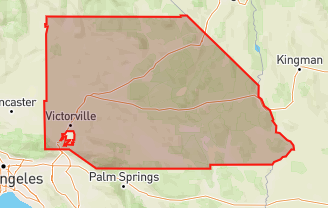 High Desert Recycling Market Development Zone
High Desert Recycling Market Development Zone
Learn about the RMDZ serving the High Desert and Mountain Communities on CalRecycle’s website.

CalRecycle administers the RMDZ program and has a wealth of information about the program and how to participate.
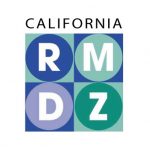
Another good source about RMDZ can be found at the California Recycling Marketing Development Association’s website: rmdzcentral.org.
Closed Loop Partners has provided funding to more than 80 companies and municipalities over its decade in existence, a period of significant turbulence in the
Governments and industries are grappling with the dual challenge of managing global waste responsibly while keeping costs manageable as landfill space diminishes and disposal expenses
Department of Commerce’s early determinations mirror industry and workforce concerns. By Scott DeFife The June announcement that the U.S. Source: Expert Editorial: U.S. Government
Copyright © 2024 Mojave Desert & Mountain Recycling Authority. All Rights Reserved.